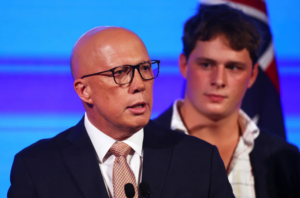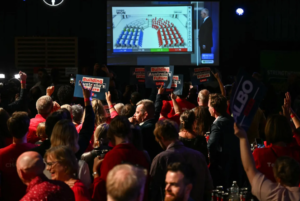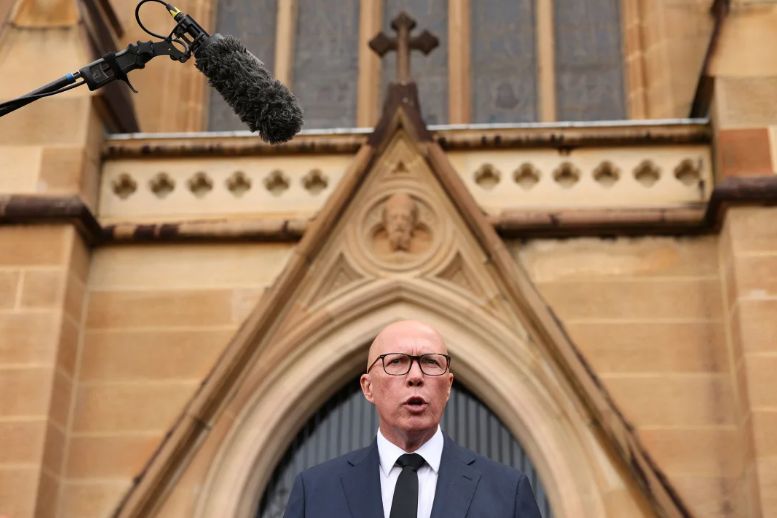Anthony Albanese Wins Second Term as Australians Reject “Trump-Style” Politics
Australia’s Prime Minister Anthony Albanese has secured a second term in office, delivering a crushing blow to the conservative opposition in an election defined by global uncertainty and growing frustration with U.S. influence under Donald Trump.
The result signals Australia’s continued shift toward progressive leadership, echoing recent political developments in Canada, where Mark Carney’s Liberal Party also made significant gains. Both countries appear to be distancing themselves from the chaos that has accompanied Trump’s return to political prominence. Peter Dutton, leader of the center-right Liberal Party, lost his own seat in Brisbane—a stunning upset after holding it for over 20 years. His loss mirrors that of Canadian Conservative leader Pierre Poilievre, further underlining a regional rejection of hardline conservatism.
Though Australia hasn’t faced the same direct sovereignty concerns as Canada, Trump’s unpredictable trade policies and tariffs have shaken public trust in the United States. Surveys show growing skepticism toward the once-unshakable alliance.

Australian Election Results
Albanese’s victory makes him the first Australian leader in two decades to win re-election. Current projections suggest his Labor Party will control at least 87 of the 150 seats in the House of Representatives.
Visibly moved, Albanese addressed supporters just before 10 p.m. in Sydney, thanking voters for choosing “optimism and determination” during difficult global times. Against expectations that both major parties would lose ground, Labor defied predictions with a strong showing. Dutton, who had hoped to become Prime Minister, conceded defeat and took full responsibility. “Our Liberal family is hurting across the country tonight,” he said. “We’ve been defined by our opponents, but that’s not the true story of who we are. We’ll rebuild from here.”
Global leaders were quick to congratulate Albanese. U.S. Secretary of State Rubio called Australia a “valued ally,” while UK Prime Minister Keir Starmer emphasized the strength of “long-distance friendships.”
A Campaign Shaped by Trump’s Shadow
Throughout the campaign, one question loomed large: how would the next Prime Minister handle relations with Donald Trump? While Albanese has faced criticism for not having strong ties with Trump, he has described their past conversations as “warm,” and insists there’s no reason for distrust. Despite recent tensions, Australia remains closely aligned with the U.S.
Dutton entered the five-week campaign in a strong position. But analysts say his campaign was hampered by policy missteps and the baggage of being too closely associated with Trump’s style of leadership. Albanese, by contrast, appeared calm and consistent—especially in response to Trump’s decision to slap 10% tariffs on Australian goods (a move later paused).
After Trump declared April 2 as “Liberation Day,” Albanese held a press conference with his foreign and trade ministers, stating plainly: “This is not the act of a friend.”
Dutton, meanwhile, struggled to shake off comparisons to Trump. One of his high-profile candidates, Jacinta Nampijinpa Price, even echoed Trump’s famous slogan, saying she wanted to “make Australia great again”—a phrase she later claimed was accidental.
When asked if the Trump comparisons hurt Dutton, Price said, “If you sling enough mud, it will stick.”
Albanese Gets a Strong Mandate
Albanese’s foreign policy achievements include improving relations with China and Pacific Island nations, reversing tensions created under previous leadership. His message: expect more of the same steady diplomacy.

Domestically, though, his government faces criticism for not doing enough to address cost-of-living pressures amid global inflation. In his second term, Albanese has promised a suite of reforms: tax cuts, cheaper medicines, a first-home buyer program, and 1.2 million new homes to tackle the housing crisis.
Elected in what was dubbed the “climate election” of 2022, Albanese’s government has aggressively expanded renewable energy—but also approved new coal and gas projects, drawing backlash. On election night, he reaffirmed his climate commitments and drew a sharp contrast to the U.S., where environmental protections have come under assault.
“All Australians know renewable energy is an opportunity we must work together to seize,” he said to loud applause.
Meanwhile, Dutton’s loss spells the end of his controversial plan to build seven publicly funded nuclear power plants—a plan critics labeled a thinly veiled attempt to delay Australia’s transition away from fossil fuels.
“This election result shows Australians have firmly rejected the Coalition’s Trump-style climate denial and nuclear push,” said David Ritter, CEO of Greenpeace Australia Pacific.
End of an Era for Dutton
Dutton’s political career ends with a thud. A former police officer, he held several senior roles in the Coalition government, including Defense, Immigration, and Home Affairs. After Scott Morrison’s loss in 2022, Dutton took over the Liberal Party, positioning himself as a tough conservative voice.
During the campaign, he attacked Albanese for not securing a tariff exemption from Trump’s trade blitz and insisted he could have negotiated a better deal. As public sentiment soured on anything resembling Trumpism, Dutton tried to shift gears—but then veered back into familiar rhetoric, calling national media outlets like The Guardian “hate media.”
He also reignited controversy by calling the Voice referendum divisive and pledging to remove Aboriginal and Torres Strait Islander flags from government press events—a move critics saw as deeply exclusionary. Albanese stood firmly against that stance.
In his victory speech, Albanese positioned himself as a unifier in sharp contrast to Dutton’s combative style.
“Now that the Australian people have made their clear choice,” he said, “let us reflect on what we have in common. No matter who you voted for, where you live, how you worship, or who you love—whether your people have lived on this land for 65,000 years or you’ve just made it your home—we are all Australians.”

